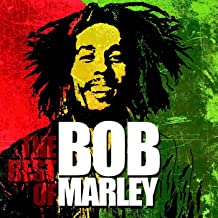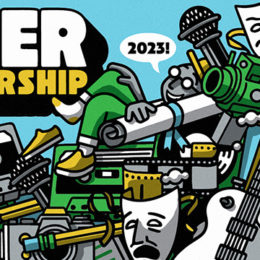The death at the age of 86 has been announced of veteran British music publishing executive Nigel Burlinson who was a key figure in the administration of the Beatles song catalogue in the 1960s and who is credited by former President of Rondor Music Lance Freed with being largely responsible for the loyalty Bob Marley felt towards Rondor.
“Nigel’s acts of kindness to Bob Marley in the early 1970s - before he was even signed by Rondor - were remembered fondly by Marley. It embellished his trust in the company and in my opinion played a significant role in his decision to join Rondor Music in 1976.”
In the 1960s - early in his career – Burlinson worked in London for Beatles music publisher Dick James as Copyright Manager. He supervised all administrative matters relating to the compositions of John Lennon, Paul McCartney, George Harrison & Ringo Starr. He also tended to the copyrights of Graham Nash and his fellow songwriting members of the Hollies. In the late 1960s his work also included handing the young Elton John (then still known as Reg Dwight) his weekly salary as a staff songwriter - £10 from the company's petty-cash box.
After Dick James sold his Beatles copyrights to Lew Grade's ATV Music, Burlinson worked for a short spell at Planetary Nom, the UK publishing partner of Morris Levy's Roulette Records. Then in 1971 he was appointed Director of Royalties for the newly-launched UK division of Rondor Music – the publishing company created by the founders of A&M Records – Herb Alpert & Jerry Moss.
He spent much of the following three decades as a highly-cherished member of Rondor's worldwide team. Initially in London - and subsequently in Paris. His administrative responsibilities at Rondor included supervising the catalogues of The Beach Boys/Brian Wilson, Billy Preston, Peter Frampton, Leon Russell, Rick Wakeman, Alan Parsons, Bob Marley, Johnny Nash, Paul Williams, Joan Armatrading, Herb Alpert, Albert Hammond, Gallagher & Lyle, Captain & Tennille, The Carpenters, Supertramp, Yes, Dire Straits, Squeeze and many others.
In the early 1980s he was lured away from the company by his former Rondor colleague Chuck Kaye to run the copyright department of Warner Bros. Music USA in Los Angeles. After 4 years he returned to his native England. He worked with Warner Bros. Music in London and consulted for other publishers eager to avail themselves of his expertise.
After a family tragedy he retired to live a 'quiet life' in France with his French-born wife Maia. But such was his unrivaled grasp of copyright and his institutional knowledge of the song catalogues of Warner Bros. and Rondor he found himself obliging constant requests from those two publishers. He worked initially in a senior role in the Paris office of the newly-merged Warner-Chappell Music.
And then Rondor succeeded in persuading him to become Head of Royalties & Accounting in its Paris office. Even after he took full retirement - because of his instinctive code of duty he still found himself continuing as a consultant to Rondor.
Prior to working for Dick James, Burlinson's apprenticeship - starting in the late 1950s - took him through a series of record company and music publishing roles in the UK industry - in ever-higher positions. Keith Prowse Music, Philips Records, Carlin Music, Pye Records and CBS Records.
But it was as the dependable manager of what became the massive Lennon-McCartney catalogue that Burlinson first achieved his full potential. And that led to his becoming one of the world's most respected music publishing executives.
While at Rondor in the 1970s he worked with a counterpart at Warner Bros. Music to develop what became the gold standard in computerized accounting systems for music copyrights. A system that Rondor & Warner Bros. then licensed to rival companies. It was the foundation for today's music accounting programs.
Because of his superlative knowledge of popular music - including the pre-Beatles era - in later years he was in demand with music companies such as BMG, MCA, Warner-Chappell, Bear Family Records et al as a research consultant on reissue projects. He contributed well-regarded discographies and liner notes for product retrospectives of major artists such as Bill Haley, Dean Martin, Doris Day, Pat Boone, Rosemary Clooney and Johnnie Ray.
Owing to his deep inside experience, he was consulted by Beatles historians for his encyclopedic memory of events from his unique vantage point in the center of their publishing world in the 1960s.
"I was in Dick James !"office - getting him to sign record company copyright licence forms - when he took a phone call from John Lennon informing Dick that he had just appointed Allen Klein as his financial adviser. Dick almost fell off his chair in shock. He knew of Klein's reputation!"
Burlinson worked closely with Beatles accountant Harry Pinsker - the man who partially inspired the song "Taxman" and who helped set up the Beatles' company Apple in 1968. His passing in 2020 triggered Burlinson to recall:
"I used to take royalty chèques for £250,000 payable to 'Lenmac' [a company jointly owned by Lennon & McCartney] to Harry Pinsker at his 'Bryce Hanmer' company office in Albemarle Street every time a quarterly payment arrived at Northern Songs from EMI. Happy days!"
Burlinson was born in England 9th July 1936. He was educated at the historic Farnham Grammar School in Surrey in southern England – an academy that dates back to 1585. He served his three years of National Service in the Royal Air Force – entering civilian life in 1957. He passed away in France on 18th January 2023 after a short illness. He is survived by his wife of 54 years - Maia - and his younger brother David.
©©©©©©©©©©©©©©©©©©©©©©©©©©©©©©
• Former President of Rondor Music Lance Freed pays this tribute to his colleague and friend:
Nigel Burlinson was an integral part of Rondor Music’s success in the 1970s. He was Director of Royalties in the formative years at our UK company and he was a large factor in the affection Bob Marley felt for the company. He was a gentle man who was loved by every one of us. I remember him as a remarkable person who was generous in spirit and kindness.
It was Nigel who befriended and assisted the young Bob Marley on his first visit to London when he was just accompanying Johnny Nash. Marley was sitting alone in our offices feeling rather lost and out-of-place. He was not signed with Rondor at that time. While serving him tea and biscuits Nigel learned that he had no money for a hotel and planned on sleeping in the park. Nigel immediately gave Bob 20 pounds from his own pocket and gave him help finding a hotel. I learned all of this first-hand from Marley in a meeting we had in December 1980 at the Wellington Hotel in New York. Marley never forgot Nigel's generosity on this and other matters. And he told me that Nigel’s many kindnesses to him in those early days - when no one else gave him much notice - were a key factor in his ongoing commitment and loyalty to Rondor as his music publisher.
We were a company that celebrated people and Nigel was at the forefront of creating that reputation. Nigel later worked for us at our offices in Paris as Head of Royalties & Accounting. He will be long remembered and celebrated by all of us who had the privilege of working with him. It’s not often that simple human kindnesses like that can set the standard for a company, but Nigel set the bar so high we all admired and loved him. The news of his passing will have a profound effect on all who knew him.”
©©©©©©©©©©©©©©©©©©©©©©©©©©©©©©
• The founding Managing Director of Rondor Music UK Derek Green (1971-1975) - who first worked with Burlinson at Carlin Music in the early 1960s - states:
"He was by far the finest and most knowledgeable copyright man in Britain. It was not rare or unusual for talent almost to base their relationship with us on their appreciation for Nigel's understanding of the business. They liked to spend time with him and they respected what he had to say. He was a major part of our growth..."














